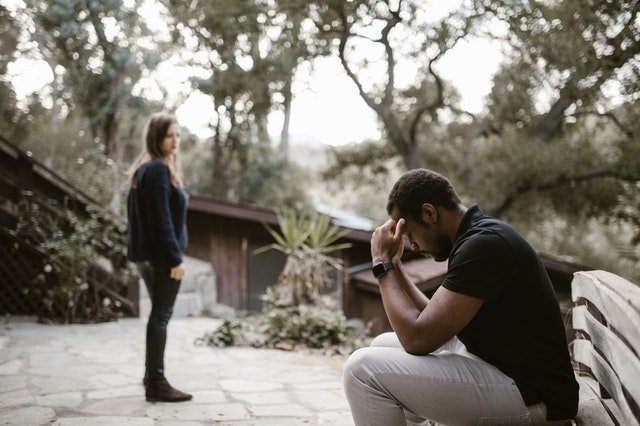
Relationship Counseling
Are You Feeling Challenged By Your Relationships?
Have you ever wondered why relationships are so much work? Are you upset by the fact that you seem to invest more energy and effort into your partnership than your significant other does? Do you avoid confrontation because it makes you uncomfortable?
Maybe you and your partner haven’t been getting along, but they’ve told you that the problem lies in your behaviors. You may feel misunderstood or alone in the relationship because no matter how hard you try, you end up having the same arguments or avoiding the same important conversations. It’s frustrating because you feel overly responsible to make the relationship work and may be confused by the mixed feelings you have about your partner.
Why Can’t We Just Get Along?
Perhaps you avoid confrontation because being in opposition with your partner feels too complicated to pursue. Or maybe you believe that being in a relationship with someone means they will always see, feel, and experience life the same way that you do. When you’re not on the same page with them, it can be upsetting, confusing, or even intolerable for you.
As you grapple with how to relate with your partner, your self-esteem is likely shattered from not feeling appreciated or valued. You may be dissatisfied or depressed, not understanding how to improve communication in your relationship.
Recognizing Familiar Patterns
Similar patterns may arise in various relationships, whether it’s with your partner, family members, friends, or co-workers. For example, maybe you get short-tempered whenever someone challenges your authority. This tendency may lead to relationship issues with peers at work as well as cause problems with your partner.
Fortunately, relationship counseling can help you feel seen, accepted, and loved for who you are. In counseling, you can learn why building relationships may be challenging for you as well as ways to cultivate stronger and more satisfying friendships.
Our ‘Us Vs. Them’ Culture Affects How We Handle Conflict
Our close relationships, while among the most enriching and nurturing connections in our lives, are also among the most challenging. Whether with partners, family members, friends, coworkers, or supervisors, conflict is an inevitable part of any relationship.
And yet many of us are conflict-adverse, actively avoiding it whenever possible. Our disdain for conflict often arises when we’re uncomfortable expressing our feelings or, perhaps, uncertain what our feelings are in the first place.
As the cultural climate we live in continues to become more polarizing, we often perceive ourselves as being on the right side of an issue and those who don’t agree with us as being wrong. Unfortunately, this “us vs. them” mindset has trickled down into our close relationships—any difference of opinion can feel like a minefield best to avoid.
We’re Embarrassed To Admit When We Don’t Relate Well To Others
Our tendency to dodge conflict also underlies the reason why we don’t seek help with our relationships. If we struggle relating to others, we’re uncomfortable talking about it, preferring instead to suck it up rather than admit we have an issue.
Further, we may feel ashamed by how we handle conflict if we get angry and explode with frustration, especially when we feel misunderstood and hurt by those closest to us. Or perhaps we’re embarrassed by how we sidestep inevitable conflicts with others rather than addressing them head-on.
But in counseling, you don’t have to be ashamed to talk about the struggles you’re having in relationships. Therapy is a safe space to discuss what you have been experiencing and learn ways to express yourself more clearly.
Counseling Can Help You Cultivate More Fulfilling Relationships
Let’s face it: relationships are complicated. Growing up, we were never handed a manual that taught us how to relate to our friends and loved ones—we learned from experience. It’s okay to admit that you could use some help navigating the complex landscape of relationships. Therapy allows you to slow things down so you can become better acquainted with your feelings with someone who can help you sort out the conflicted emotions you have.
What To Expect In Sessions
In our initial session, we will discuss what brought you to therapy and what you are hoping to achieve from it. The relationship you and I form during therapy allows us to examine the patterns and dynamics as they emerge in our work together. For example, if I notice there are times when you grow quiet and stop expressing yourself, I will draw your awareness to it. We may discover this tends to happen whenever you feel misunderstood. By exploring this further we can consider other possible ways of handling this situation.
As we continue to work together, you will learn more about the feelings and expectations that underlie your relationship challenges, and—by examining your family history—better understand where these feelings and expectations come from. We will also actively engage and work through the inevitable conflicts that arise in relationships. In so doing, you can take this experience with you and apply it in your daily life.
Helpful Communication Skills Will Help Build Self-Confidence
In therapy, you will learn more effective ways to navigate conflict rather than shy away from it to keep the peace. You will be encouraged to communicate more genuinely and not be embarrassed to ask for what you want. Whereas previously it may have felt easier and more self-protective to withdraw or push others away, you will develop the self-confidence to engage with them and learn how to collaborate.
Moreover, you will learn strategies for de-escalation for occasions when you feel conflict arising. When things feel heated, you will learn how to stop, take a breath, and disengage from the conversation, coming back to it later after you’ve cooled off. You will also be encouraged to tolerate others’ opinions that make you feel uncomfortable without reacting immediately and to share space with others where each of you can express yourselves without interruptions.
Relationship coaching will help you more fully understand how we are all multi-dimensional people capable of thinking and feeling many things. Although relationships take work, in counseling you will be reminded how enriching they are to your life. When conflict arises between you and others, it is not necessarily a problem, but, rather, an opportunity for growth. When differences are acknowledged and worked on together, greater care and intimacy will be shared as well as acceptance for one another.
But You May Wonder Whether Relationship Counseling Is Right For You…
Why do I have to be the one who goes to therapy when I’m not the only one responsible for conflict in the relationship?
While it is tempting to believe the issues you’re having in your relationships are mostly the fault of others, the fact remains that you are the one suffering. It’s an important step, even a giant leap, to recognize that something needs to change in your relationships and to acknowledge that you can choose to seek help. Instead of looking outward, relationship therapy allows you to focus inwardly to understand the thoughts and beliefs you have that contribute to how you interact with others.
I don’t know who I am outside of this relationship anymore.
When you lose your sense of identity in a relationship, it can feel disorienting. It’s an important undertaking when you begin to reconnect with yourself as an individual after entering a relationship that has become all-consuming. Together, we can examine how getting stuck in this relationship has served a function in your life, albeit a painful one. We can also explore what the loss of your separate identity means to you and determine what aspects of your identity you most want to regain.
Shouldn’t we be in couples therapy instead?
In my experience, partaking in both couples counseling as well as individual therapy is greatly enriching to both parties. In relationship therapy, you can focus on what’s going on with you specifically, what may be evoked in your relationship, as well as any historical experiences that may be clouding your present perspective. In couples therapy, the work will be primarily focused on the relationship between you and your partner. The interplay between these approaches sheds a lot of light on understanding the conflicts in the current relationship as well as what you as an individual bring to the dynamic.
Forming Deeper Connections With Others Can Enrich Your Life
Learning how to express yourself with others can be a life-changing experience. For a free, 15-minute consultation to learn more about relationship counseling, please call me at 415-522-7393 or click here to contact me.



